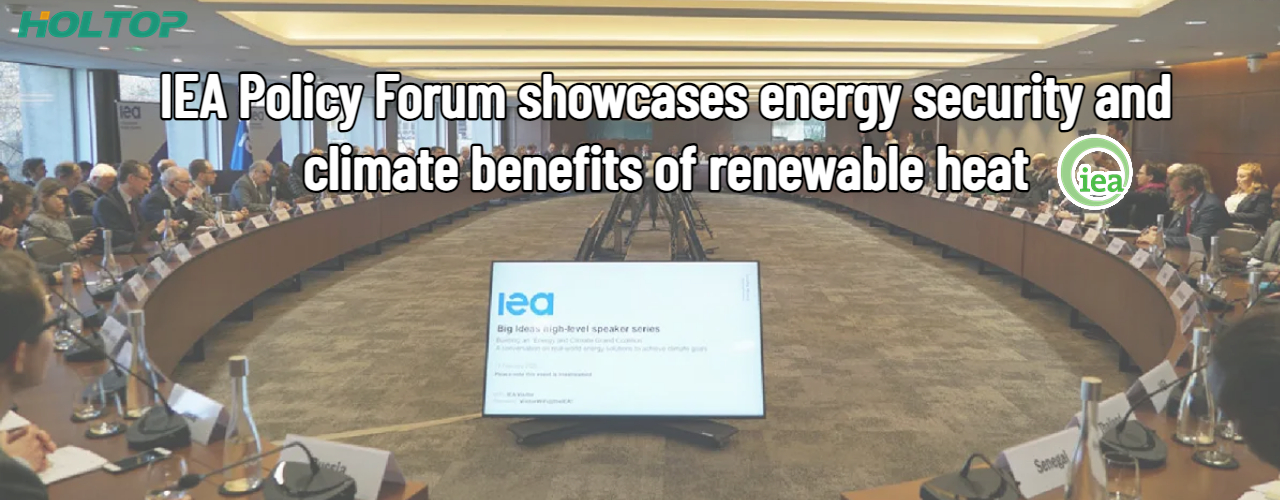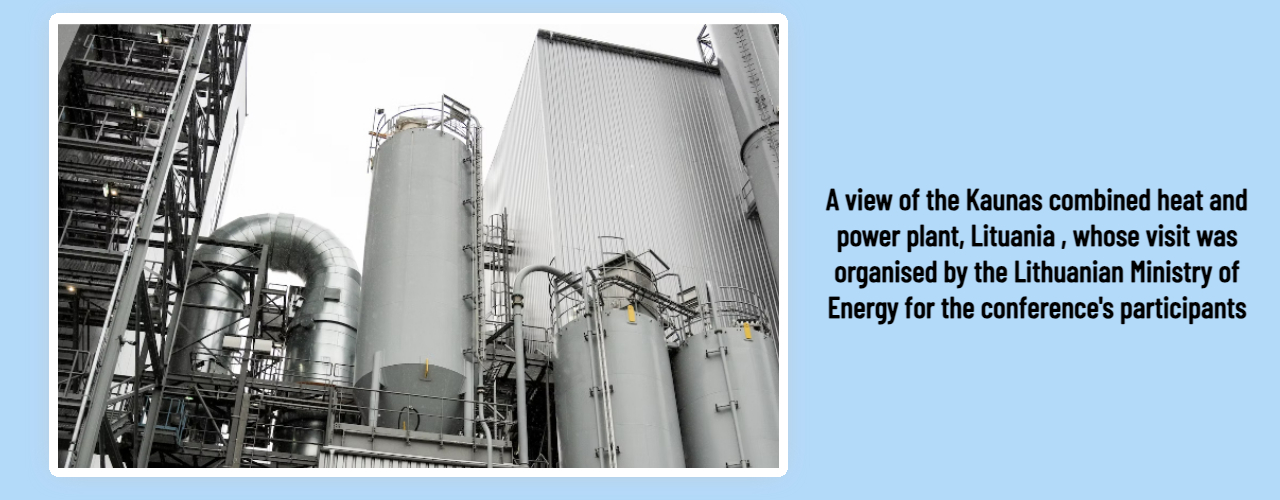
Countries share experiences at two-day meeting, with Lithuania highlighting its success with renewable district heating

The International Energy Agency brought together key stakeholders and experts at a two-day policy forum in Vilnius, Lithuania, to discuss decarbonisation pathways and the potential of renewable heat solutions.
The event in the Lithuanian capital, attended by representatives from all five Eastern Partnership countries of the EU-funded EU4Energy programme, showcased how renewable heat investment can help countries meet net zero goals and improve energy security. IEA members such as Lithuania, Denmark and Sweden shared potential policy pathways employing a variety of technologies.
Renewable heat is an important topic for many countries, as it can reduce reliance on energy imports, particularly natural gas. In addition, it can significantly cut carbon dioxide (CO2) emissions and help countries meet their climate goals.
Lithuanian Vice Minister of Energy Inga Žiliené provided the opening remarks, emphasising her country's achievements in renewable district heating and their relevance to energy strategies globally and to decarbonisation targets. The IEA provided an overview of renewable heat trends, setting the stage for engaging discussions throughout both days.
A major point of the first session was the contribution of district heating to decarbonisation, with presentations by the Lithuanian District Heating Association and the Vilnius utility company. The Lithuanian Ministry of Energy organised a visit to the Kaunas Combined Heat and Power Plant, and participants at the Forum commended Lithuania's transition to renewable district heating and recognised its potential applicability for their own nations. Presentations by Euro Heat&Power, Danfoss, and the IEA Solar Heating and Cooling TCP further enriched the discussions.
The Forum’s second day centred on scaling up distributed renewable heat solutions and sharing experiences in the transition to sustainable heating. The session featured technological trends applicable to various countries, including heat pumps, pellets, solar thermal, and solar PV-to-heat solutions. Highlights of the session included a presentation by Ukrainian company Naftogaz on its biomass and waste strategy, demonstrating the intersection of energy efficiency and renewables on an industrial scale. Moldova, Sweden, and Denmark also shared experiences in biomass and renewable district heating.
Participating countries cited the timeliness and relevance of the discussions and noted that holding the event in Lithuania allowed them to learn from the country’s strong progress in reducing CO2 emissions and implementing renewable heat solutions. The active engagement and numerous questions from representatives of Eastern Partnership (EaP) countries underscored the value of the forum. Participants also commended the IEA's ability to attract a diverse range of organizations and companies.
Post time: Jul-13-2023








